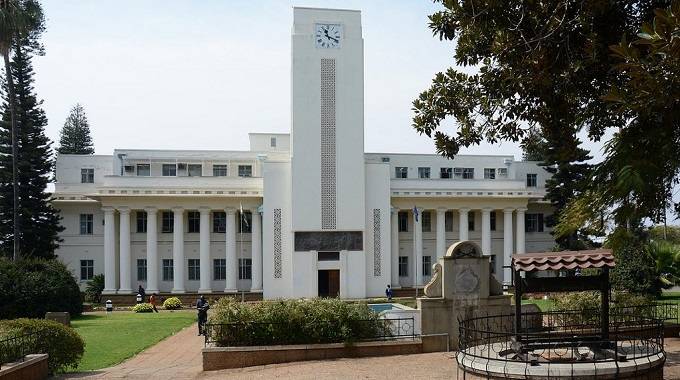Bulawayo City Council (BCC) says it will continue with its water conservation methods to protect the city from running out water, at a time when the city`s supply dams are running dry due to a crippling drought affecting the country.
This comes after the government had insisted that the city had enough water to last up to 14 months while brushing aside proposals to declare the water situation a national disaster.
The government consultants said the water challenges in the city were technical while the local authority insists the 144-hour water-shedding period is necessary to stretch the available water resources since water levels are now at 28 percent.
Due to the drought situation, the city`s remaining three supply dams (Mtshabezi, Insiza and Inyankuni) have not received significant inflows and would require at least three consecutive rainy seasons to fill up.
Addressing a press briefing on the city`s water situation on Thursday at the council chambers, Bulawayo mayor, Councillor Solomon Mguni explained that the current city’s water situation is almost a recurrence of the 1992 situation wherein the country experienced a crippling drought that affected the city’s raw water storage and supply.
The mayor said the urban water management strategy for Zimbabwe uses a drought mitigation condition called ‘21 months rule’ to minimise the effects of future droughts to urban centres.
“If storage at end of a rainy season is not sufficient to sustain a city to the next rainy season (December 2021), water-shedding should commence immediately, this is the water demand management strategy that was adopted by the city since February 2019,” he said.
The mayor said this ’21 months rule’ gives adequate time to invest in mitigation projects to lessen the impact during a water crisis and if the city fails to receive adequate inflows in the 2020/21 rainy season.
Cllr Mguni said recommendations by the consulting engineer engaged by the government would only add 29 megalitres per day in terms of additional raw water.
“Projections are that by December 2021, Bulawayo will only have 61 megalitres per day available from Inyankuni and the Nyamandlovu aquifer. On the other hand, proposals by BCC will provide an additional 59 megalitres per day and the available raw water of 97 megalitres per day by the same period from Nyamandlovu, Inyankuni and Mtshabezi,” he said.
BCC Director of Engineering Services Simela Dube noted that even with government interventions, BCC will be unable to reverse water-shedding until the dams had received enough inflows.
“Which is why mayor indicated the consultant’s recommendations are adding just 29 megalitres per day to the Bulawayo raw water requirements, while city’s request to the government was to say ‘let’s add almost 59 megalitres per day. Such that by the end of 2021 when we don’t have rains coming, we remain with 97 megalitres per day, which we can still juggle and are currently working with at this stage.
“While the other option is to mine water we have, it will actually leave us with 61 megalitres per day. This will create serious challenges for the city hence mayors statement need for short term interventions brought on point,” he said.
Engineer Dube explained when dams are built, they are designed with storage capacity and this was now less than what Bulawayo requires.
“That storage is from the rainfall patterns where we come up with yield which is maximum water to be drawn out. Every time we abstract from the dams they reduce or run dry and climate change is also a factor. The potential for you to have water back into dams in one rainy season is impossible to fill up you need three seasons, that’s if no water is abstracted,” he said.
The city engineer said the medium-term project announced by the mayor needed to be urgently done.
“We don’t foresee the Gwayi-Shangani Dam coming into play in the next four to five years, so these medium-term projects need to brought online. The city has been surviving on rationing since 1992 and these water management strategies have stretched resources while awaiting for the Gwayi-Shangani Dam to come,” Dube noted.
Bulawayo’s town clerk, Christopher Dube said the city still maintained its position that the water crisis be declared a national disaster, although he acknowledged that the government had the final say.

